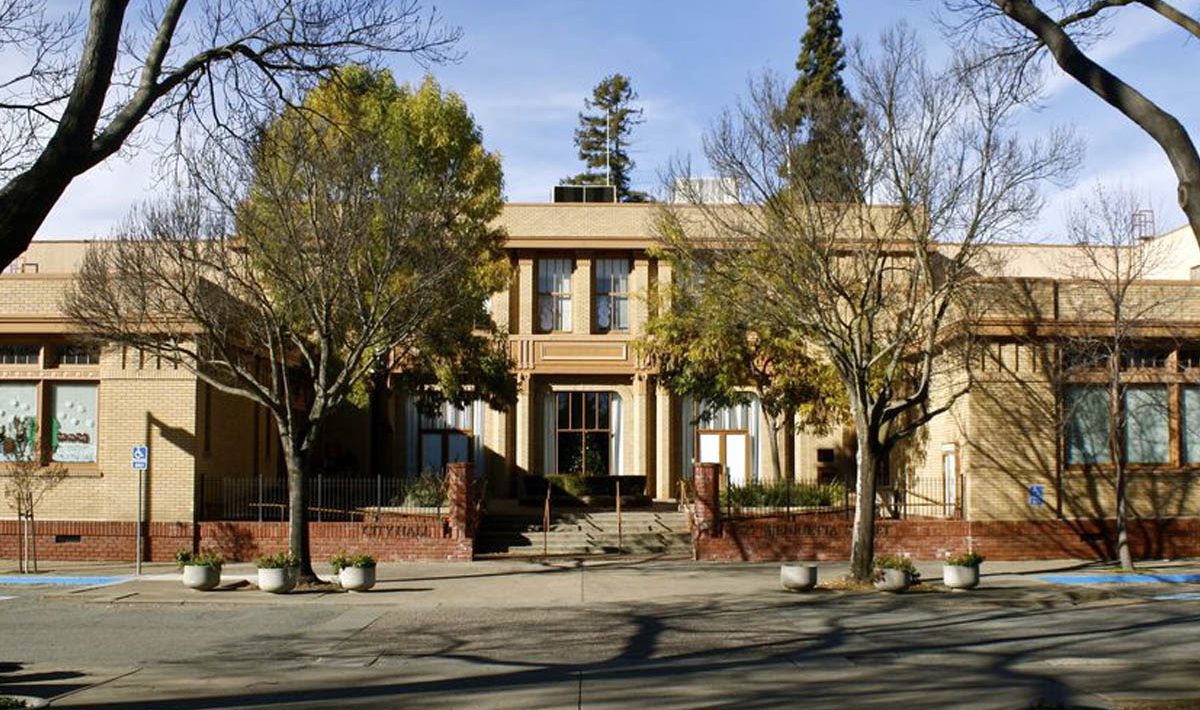Martinez City Council amended its 2019-2020 budget at the May 20 meeting, shoring up its shortfalls through reserves, unspent funds and the one-time $525,000 in transfer tax from the sale of the Martinez refinery.
Since the government constraints imposed in hopes of reining in the COVID-19 virus pandemic, some operations have been cut back and certain revenues – although not all – have dropped, Finance Director David Glasser said.
The city’s General Fund – its operating bank account – was expected to receive $27,318,237 when the budget was adopted. By the June 30 end of the fiscal year, the revenue should be $26,827, 327.
Glasser received approval to adjust the General Fund budget down by $927,507 and covering that gap from unassigned and undesignated reserves, the 2018-19 General Fund surplus and the unassigned contingency money that is available in economically uncertain times.
The additional expenditure of $451,000 for public safety salaries negotiated after the budget was adopted should be covered by unassigned and undesignated General Fund reserves, he recommended.
In his report to the Council and City Manager Eric Figueroa, Glasser said taxes, licenses, permits and other fees kept the income bolstered, but fines and forfeitures, charges for services saw significant drops as rules designed to limit the COVID-19 pandemic’s spread curbed a variety of activities.
Martinez’s backup plan includes $10,538,916 in unassigned funds, which include a million for catastrophes and another million for economic uncertainties.
Glasser has recommended covering the added $190,000 in litigation expenses from undesignated and unassigned reserves, and while it’s an additional expense, Martinez should have a lobbyist through the end of the year and during Fiscal Year 2021 so the city has a voice that reaches the state Legislature.
Another $50,000 from unassigned fund balances should be available to offer a summer camp or childcare program starting in June, if the city gets approval to proceed, and to mobilize pool staff before July 1, Glasser recommended.
And while Wednesday’s meeting didn’t formally address the pandemic’s impact on the 2020-21 budget, future cutbacks are expected, especially in light of Governor Gavin Newsom’s own revision to the next state budget, which changed in a few months from a surplus to a $54 billion deficit.
“Each department reviewed their budgets to find areas where reductions could be taken for non-essential operating costs and to cease any non-essential spending. Staff hiring for vacant positions is now on hold except for critical safety areas,” Glasser wrote in a report sent earlier to Figueroa for presentation to the Council.
Not all the news for Martinez is bad. Property taxes are expected to remain stable, and in fact increased this year by $68,000. That trend may continue next year, Glasser said.
Because of that, tax revenues increased from a projected $23,820,630 to $23,980,782. Licenses, permits and fees were budgeted at $611,500 and are expected to be slightly higher overall, at $635,000.
Fines and forfeitures have dropped by more than a quarter million dollars, from $611,264 to $249,494.
Intergovernment revenues are rising. These are from reimbursements, mandates, grants and other sources, and were expected to total $523,743, but are projected to come in at $618,312.
But recreation services had to be halted because of the pandemic. Income was budgeted at $1,137,300 and have dropped to $682,439, and park, concession and other rentals, budgeted at $165,300, dropped to $122,000.
The combined department revenues from the city water and waste systems, Friends of the Library, settlements rebates and reimbursements showed a little improvement, projected at $75,500 and coming in at $76,300.
Sales tax declined by $217,000 compared to expectations when the current budget was adopted, and that’s a drop that is expected to continue into the coming fiscal year. Some areas will weather the storm better than others, Glasser said, with declines ranging from 25 percent to as much as 50 percent in 2020-21.
Local sales tax also is dropping, although Martinez gets a share of sales tax from online shopping, an option those who are staying at home are choosing instead of venturing out and wearing face coverings in brick and mortar stores.
Measure X, a half-cent sales and use tax designed to maintain the city’s standard of services, saw a decrease of $73,000 below expectations, and Measure D, another half-cent tax dedicated to street and road improvements, saw a similar drop. As a special tax, Measure D is not included in the General Fund, Glasser said.
Another tax designed to improve roads, Senate Bill 1, has been protected from raiding by the state, and while the revenues are expected to drop, the fund itself will keep its intended purpose, Glasser said. Likewise, California isn’t expected to require more from cities as it has done in past financial declines, he said.
Martinez may see bumps in its cash flow because California enacted state sales tax deferral programs to help businesses cope with the orders imposed to restrain the virus.
Those filing returns for less than $1 million in tax liability get a 90-day extension, which could delay the city receiving about $452,000. Another program gives businesses a 12-month, interest-free installment plan that could delay receipt of $262,300.
The city isn’t monitoring parking meters, so in addition to losing meter revenue, it’s also losing parking citation fees, for a decrease of $268,000. Parking enforcement was suspended during the ordered shelter in place, both to help businesses and to address staffing shortages, Glasser explained.
Planning department fees also dropped, by $140,000. Building plan check fees dropped by $71,000. Glasser said the revenue sources may improve slowly once the shelter in place is lifted, but Martinez won’t see positive changes before the end of the current budget year.
Park maintenance fees are $30,000 lower; field usage fees also are $30,000 lower and general recreation fees are $41,000 lower than the original expectations.
The city has lost $70,000 in expected swimming pool admissions, $38,000 in canceled swimming lessons, $34,000 in pool party charges and another $34,000 in loss of park rentals.
Labor negotiations that wrapped up after the current budget was adopted caused additional expenditures of $676,000, and others were $120,000 more than anticipated.






One Reply to “City Council adjusts budget”